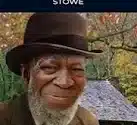
I will wait
I will wait
The Retune Blog - 11th August 2023
This week I’ve binge watched the new Netflix docuseries How to Become a Cult Leader. When I used to lecture psychosocial analysis one of the topics I used to teach was around cults. Even the term itself is fascinating before you even get to the groups people use the term to talk about. Much like the term conspiracy words like this are often used to describe what sociologists might term others or outsiders. People whose actions and beliefs don’t follow social norms. For example, Christianity was originally considered a cult (and sometimes still is), and the idea that union construction workers being blacklisted was just a conspiracy was disproved when major building firms started paying significant compensation to the victims.
Of course, all of this is not to say that cults and conspiracies do not exist and do not harm people, or that they are everywhere and secretly dominate all our lives. But, what it does bring into question is how our interaction with our daily experiences shapes our expectations and perspectives, and in turn how this influences our thinking. So how do we walk the line between critical and conspiratorial, spiritual or cultish? Cue our song, I Will Wait by Mumford and Sons:
Now I'll be bold, as well as strong. And use my head alongside my heart. So tame my flesh, and fix my eyes. A tethered mind, freed from the lies.
The song itself reads like a re-interpretation of the biblical parable of the lost son. The protagonist is returning home after a fruitless pursuit of a perceived better life with the lyric above exemplifying their learning:
- Bold and strong - We don’t need to follow the template of others but this requires vision and commitment on our part.
- Head and heart - If being bold and strong, along with recognising our connectedness to other people is using our heart, this is combined with using our logical faculties.
- Tame and fix - Our urges and instincts can lead us astray, so we need to be focused on the goal.
- Tethered and free - The disciplined mind forms part of our liberation.
There’s so much depth in this one lyric alone, but one of the ways I’ve been playing around with this for a few years now is through the term post-cognitive. Post-cognitivism suggests that our approach to life is more than simply cognitively based, that is, logic, evidence, analysis, information storage and retrieval. It is also informed by something beyond that, in the lyric we might consider this our heart.
In the parable the son chooses an alternative life only to discover when all is lost that it was not all his heart had hoped for. Yet the lyric suggests it is not logic alone that brings us back from the brink. It is a combination of logic and something more, the relational longing of our heart.
Whilst there are many technical ways of exploring and critiquing post-cognitivism, recognising that no matter how logical we might consider ourselves, all our thoughts and actions come from an interaction of head and heart seems like a good way of applying the concept. So, when we begin to think of how people interact in what others might determine a cult or conspiracy we need to recognise how it is the heart as well as the head which has been enchanted.
But it also leads to a deeper question. How do we analyse our own thoughts and actions? There usually is a line between cult, conspiracy and reality, but where is it and how do we know where it is? I think the answer lies in the question. We don’t. But a post-cognitive approach would be to be bold and strong, use our head and our heart, tame our instincts with focus and consider how practice of the cultic or conspiratorial ideas impacts us and others, but all with humility and love as the anchor.
If as a lecturer on these topics I learned anything, it was that we are all susceptible, and all ever only partially right.
Uncle Tom’s Cabin has been a controversial book. It has been credited with playing a pivotal role in the abolition of slavery and is still considered by some as one of the most important American novels ever written. For others, the portrayal of the characters is often oversimplified and stereotypical. However, in relation to this week’s blog on postcognitive thinking, it helps see the layers and interpretations of what might first seem straightforward issues. Uncle Tom’s Cabin shows how exploration of morals is itself an endeavour which is, like all thinking, bound in time and context.








-
-
1 year
Tagged broken compass, Choices, decisions, five bolt main, life compass